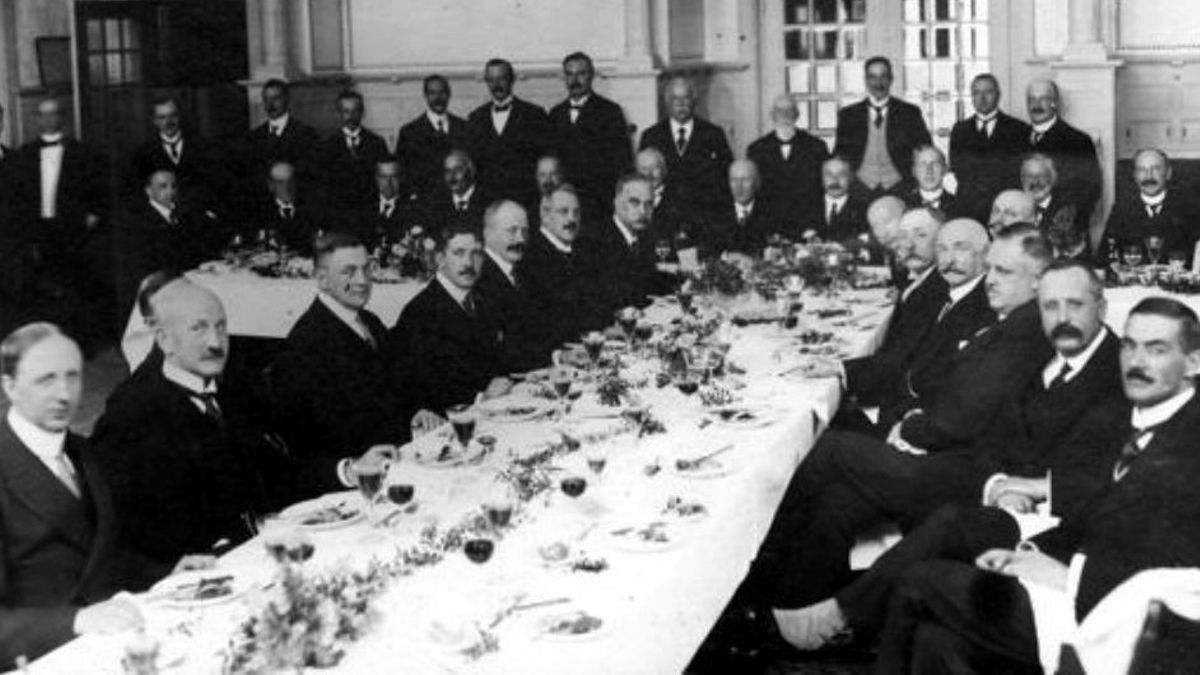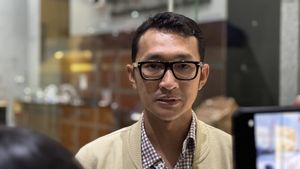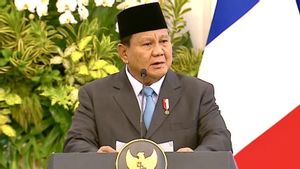JAKARTA - Many officials are not grateful. Annoying character that has lasted since the days of the Dutch Chamber of Commerce, the VOC in power. During the VOC era, officials justified corruption because of the low salary. The VOC at that time could only provide binding money to its officials. The VOC also regretted this because each official sought additional wages through illegal fees (extortion).
The VOC was no different from the majority of the political / economic organizations of that era, which paid “extraordinarily small” salaries to its employees. The governor of the North Coast of Java, for example, is only paid 80 guilders a month. Then the governor asked that the entire salary be given to his family in the Netherlands. Meanwhile, he lived through extortion, smuggling and private trade.
Quoted by M. Adnan Amal in the book The Spice Islands (2007), the Governor of the Ambon Islands Alexander Cornabe (1780-1793) is an example of an official who perpetuates corrupt practices due to low wages. This corrupt practice was uncovered during a cash check in 1792. On this evidence, Cornabe was then sent to Batavia to undergo an examination. He was found guilty.
Not only in the class of a regional governor. In the absence of a raise, VOC officials who were paid between 16 and 24 guilders contributed to perpetuating the extortion. The practice of enriching themselves even came from among top officials, such as the Governor-General of the VOC who was paid 700 guilders. That fact was because most of the VOC governor-generals who quit their office suddenly became new rich.
“Van Hoorn - in 1704 became Governor General of the VOC replacing his father-in-law, Willem van Outhoorn, who was Governor General of the VOC from 1691-1704 - took office because of his father-in-law's nepotism practices. After becoming governor general, he returned to the Netherlands in 1709 as a millionaire. In just five years of his tenure, van Hoorn returned home with no less than 10 million guilders, a number which was quite spectacular at that time. In fact, his official salary as governor general is not more than 700 guilders per month, "wrote M. Adnan Amal.
The "mockery" of VOC officialsThe practice of corruption through extortion has increasingly fled its existence because of the provisions regulated by a high-ranking VOC official, Heeren Zeventien. Under this provision, VOC officials were allowed to do business on their own. In that sense, each official was allowed to earn money at any cost as long as the affairs with the VOC were settled. Hajat looking for side money they call the morshandel (leftover trading).
However, that authority was misused. The VOC ships departing from Java contained a lot of leftover trading goods belonging to private VOC officials. And only a few of the official goods on behalf of the Dutch trading partnership, the VOC.
"Apart from that, there was manipulation in the scales, prices, sales of positions, sales of monopolies such as opium, salt, etc., so that VOC officials became wealthy, while the VOC itself was getting poorer. In the end, the VOC imposed taxes on its officials and sold the positions of regents, landlords and others - and often as hereditary possessions, "wrote historian Ong Hok Ham in the book Wahyu Yang Hilang, Negeri yang Guncang (2018).
Due to this practice, company officials did not feel close to the colony. Historian Hendrik E. Niemeijer sees this phenomenon as causing officials to smuggle and collect money to bring back to the Netherlands instead of investing it in colonies.
“Batavia will not benefit from such a leak of money. A free port of international standard will bring in money, encourage trade in goods of living necessities and reduce costs incurred for fortification and shipping. These costs should be borne by the colony alone, ”Hendrik E. Niemeijer in the book Batavia: Colonial Society of the XVII Century (2012).

The directors who are members of the Heeren Zeventien are aware of this condition. According to the observations of high-ranking company officials, most of the officials whose salaries were never more than a few thousand guilders a year, actually appeared to be new riches by bringing hundreds of thousands of guilders back to Holland after 12-15 years of serving in the colony.
Because of this, everyone knew immediately that the income earned by Company officials came from extortion. Moreover, the party for the release of the fleet from Batavia to their hometown was made the biggest annual event.
Thousands of instant affairs had to be cleared up privately between skippers and sailors in order to smuggle valuables into Europe. This incident often made the smuggled goods worth more than the regular cargo belonging to the company itself.
Meanwhile, items that were not smuggled and had low value, Company officials sold them directly in front of the house. The sale had been announced a few days earlier in a local newspaper. As a result, this tradition is known as a "garage sale."
In more detail, we have reviewed the subject of garage sales in the article "The Origin of Garage Sale Traditions in Indonesia: Events of Dutch Officials Become Places to Find Cheap Goods".
Because of that, Heeren Zeventien did not remain silent. Through their powers, they assigned VOC Governor-General Hendrick Zwaardecroon (1718-1725) to execute 26 people for extortion and act in violation of company laws. As stated by Bernard HM Vlekke in the book Nusantara (1959), in fact this effort was in vain.
"Because 15 years later, in 1731, the Directors (Heeren Zeventien) imposed strict sentences to deter people and ordered the immediate dismissal and forced return to the Netherlands Governor General Durven, Director General of Asian Commerce, two members of the Council of the Indies, and a number of other high ranking officials. . For a while the smuggling stopped, but as a result hundreds of Batavian people went bankrupt because they lost their source of livelihood, ”said Bernard HM Vlekke.
After that, corrupt practices became so popular that the VOC went bankrupt at the end of the 18th century.Therefore, as historian Ong Hok Ham said, the only principle that VOC officials applied was: If the center was unable to pay and supervise the village head (official), local people who have to pay for it.
The English, Chinese, Japanese, Arabic, and French versions are automatically generated by the AI. So there may still be inaccuracies in translating, please always see Indonesian as our main language. (system supported by DigitalSiber.id)












